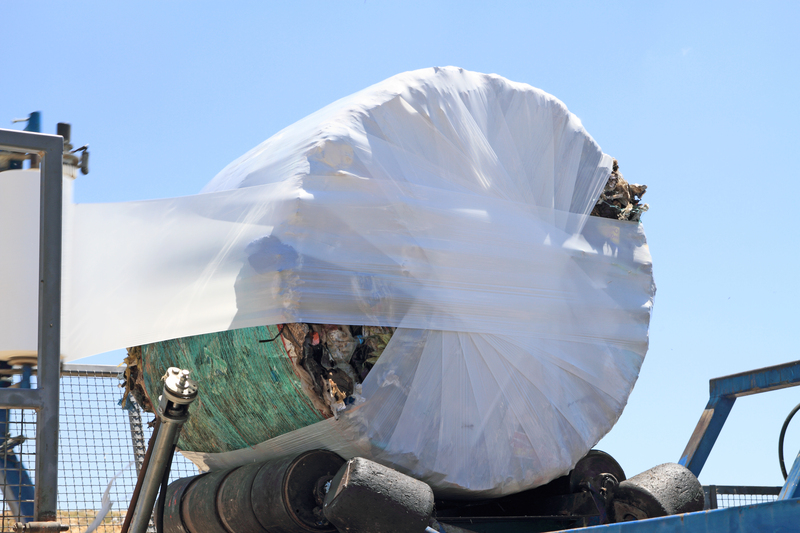Bulky Waste Items: Innovative Methods to Reduce Your Disposal Costs
Bulky waste items--such as old furniture, mattresses, appliances, and other large household or commercial debris--are a challenge for many homeowners, tenants, businesses, and property managers. Not only do these items take up precious space, but the costs and environmental implications of their disposal can be substantial. In this comprehensive article, we'll reveal innovative methods to reduce your bulky waste disposal costs and minimize your environmental impact, while also streamlining your overall waste management process.

Understanding Bulky Waste: What Qualifies?
Bulky waste, sometimes referred to as large waste items, oversized waste, or hard rubbish, typically refers to materials that are too large for regular curbside collection. These items can include:
- Furniture: sofas, beds, wardrobes, desks, bookshelves, chairs
- Appliances: refrigerators, washing machines, ovens, freezers, air conditioners
- Mattresses and bed frames
- Carpets and rugs
- Garden waste: large branches, tree stumps, garden sheds
- Renovation debris: bathtubs, sinks, toilets, tiles, doors
- Electronics: televisions, computers, printers, monitors (also classified as E-waste)
Understanding bulky trash is the first step in finding the most cost-effective and sustainable disposal solutions for your specific needs.
Hidden Costs of Bulky Waste Disposal
Though it may seem simple to hire a removal service or schedule a pick-up with your local council, traditional bulky waste disposal methods often come with a range of hidden or indirect costs:
- High landfill fees: Standard landfill charges for bulky goods can be significant, especially for organic or hazardous components.
- Transportation costs: Larger items require special vehicles and more fuel for transportation.
- Labour charges: Dismantling and moving heavy objects can increase labor expenses.
- Environmental levies: National or local governments increasingly apply environmental charges for landfill use and waste management.
- Regulatory fines: Improper disposal or illegal dumping can result in hefty fines.
Investing time in innovative bulk item disposal options can cut these costs significantly, offer environmental benefits, and often even create opportunities for community support or revenue generation.
1. Donate Bulky Items to Charity or Community Programs
Perhaps the most rewarding way to deal with large waste items is to donate them. Many charities, social enterprises, and local organizations accept furniture, appliances, and other functional bulky goods to help those in need or raise funds. In some cases, they even provide a pick-up service.
Types of Items Often Accepted:
- Sofas, beds, and tables in good condition
- White goods (washing machines, tumble dryers, refrigerators)
- Office furniture (desks, chairs, filing cabinets)
- Working electronics
*Tip: Clean and test items before donating, and check with the organization regarding their guidelines and pick-up policies. Donating helps you save on disposal fees while providing valuable resources to others--it's a win-win!
Benefits of Donation:
- Reduces your disposal costs or eliminates them entirely
- Minimizes landfill use and supports a circular economy
- Potentially offers you a tax deduction (depending on your local laws)
- Strengthens community ties
2. Sell or Give Away Bulky Waste Online
With the rise of online marketplaces and community platforms, selling or giving away bulky household items has never been easier. Websites, apps, and social media channels now let you reach local buyers looking for everything from used appliances to vintage sofas.
Popular Platforms:
- Facebook Marketplace
- Craigslist
- Gumtree
- Nextdoor
- Freecycle
- LetGo
How to Succeed:
- Take clear photos and provide accurate descriptions
- Be honest about the condition and measurements
- Arrange for contactless pickup to make the process safe and simple
- Set a reasonable price or mark as "free" for quick removal
By utilizing these platforms, you might generate some extra income or at least eliminate transport fees. Many people will be happy to collect the items themselves, directly reducing your disposal costs for bulky items.
3. Upcycle or Repurpose: Transform Bulky Waste into Useful Products
Sometimes, what's considered "waste" can be creatively transformed or upcycled into valuable new products. This sustainable method not only keeps bulky materials out of landfills but can also save you money--or even earn you some!
Creative Upcycling Ideas:
- Old Couches: Convert the frame into a garden bench, pet bed, or storage box
- Pallets: Reinvent as outdoor seating, compost bins, or shelving
- Appliances: Use drums from washing machines as fire pits or planters
- Doors/Windows: Repurpose as desk tops, decorative frames, or garden dividers
Why Upcycle?
- Saves on large waste disposal fees
- Reduces the need to purchase new materials
- Provides unique, custom decor for your home or garden
Local makers' spaces, DIY workshops, and social media communities can also offer inspiration and advice for creative reuse.
4. Schedule a Bulky Waste Collection--But Shop Around!
Many municipalities and private waste management companies offer bulky waste collection services. However, fees and options vary widely--so it pays to investigate:
- Municipal Collection: Some councils offer free or discounted annual pick-ups.
- Private Removal Services: Can be scheduled at your convenience, often with same-day or next-day service.
- Group Collection: Coordinate with neighbors to arrange a shared collection, splitting the cost.
Before booking, compare service fees, environmental policies, and availability. In many cases, bundling several items into a single collection is more economical than arranging individual pickups for each item.
Tips to Reduce Collection Costs
- Disassemble items: Breaking down furniture or beds into flat components may reduce volume and fees.
- Combine loads: Share pick-ups with neighbors or organize a community bulk waste day.
- Maximize utility: Place items that can't be donated or sold into your bulk collection slot.
5. Take Advantage of Extended Producer Responsibility (EPR) Schemes
Certain bulky products, such as appliances and electronics (E-waste), fall under Extended Producer Responsibility programs, which may allow free or subsidized take-back services through manufacturers or retailers.
How EPR Schemes Work:
- Manufacturers are obligated to help manage waste generated by their products
- Many offer free appliance or electronics take-back when delivering a new item
- Some retailers offer "trade-in" deals, discounts, or vouchers for returning old goods
Using EPR programs ensures safe, responsible disposal and minimizes both environmental impact and direct disposal costs for bulky waste items.
6. Engage a Specialist Recycling Facility
Many bulky waste items can be diverted from landfill through specialist recycling facilities. These facilities typically accept:
- Metals: Appliances (white goods), bed frames, shelving units can often be recycled for scrap metal value
- Wood: Many recycling centers accept untreated timber and old furniture for reuse or composting
- Foam and textiles: Mattresses and upholstery can be processed for recycling where specialized recovery exists
Contact your local council or search online for bulk recycling centers. In some instances, they'll pay for certain materials, turning your large waste items into a revenue stream or reducing your overall disposal bill.
7. Host or Attend a Community Swap or Drop-Off Event
Community sustainability is on the rise. Many towns or neighborhoods run swap events, recycling drives, or free drop-off days for residents to exchange or dispose of bulky goods. These events can be a fantastic way to clear out your unwanted items for free while helping others reduce their reliance on new purchases.
- Bulk waste days: Residents take advantage of free or discounted disposal options
- Community swaps: Trade furniture, appliances, or tools directly with others in your area
Check your local council's calendar or community noticeboards for upcoming dates, or organize your own event with neighbors and friends.
8. Responsible Disposal: Avoid Illegal Dumping and Costly Fines
It may be tempting to dump bulky household waste in unauthorized locations, but illegal dumping leads to environmental harm and substantial penalties. Always use licensed facilities, council services, or certified third-party operators. Proper documentation can protect you from liability and support claims if any issues arise.
9. Commercial Options: Reducing Disposal Costs for Businesses
Businesses, landlords, and commercial property managers often face even higher costs and stricter compliance for bulky office waste. Innovative approaches include:
- Leasing or sharing waste containers with nearby businesses to reduce hauling charges
- Setting up corporate recycling and donation programs to divert furniture and electronics
- Using waste consultants to analyze waste streams and optimize bulk disposal operations
- Scheduling "office clean-out days" coinciding with municipal bulk collection events
Bulk procurement or disposal contracts often yield better rates, especially if you're a commercial client dealing with large volumes of bulky junk items.
Summary & Key Takeaways
- Donate, sell, or swap working or reusable goods to minimize waste and support your community.
- Upcycle and repurpose to give new life to old items and save on purchasing new products.
- Shop around for the most cost-effective bulky waste collection services in your area.
- Take advantage of producer take-back programs and recycling centers for eligible items.
- Avoid illegal dumping and always use registered waste operators.
- For businesses, pool resources and formalize waste management strategies to maximize value and minimize costs.
By embracing these innovative bulk disposal methods, you'll not only reduce your bulky item waste costs but also contribute to a cleaner, more sustainable community. Start planning your disposal strategy today to save money, time, and the environment--one bulky item at a time!

Frequently Asked Questions on Bulky Waste Disposal
What counts as bulky waste?
Any item that's too large for regular curbside bins--like sofas, white goods, mattresses, and renovation debris--generally qualifies as bulky waste.
Can bulky items be recycled?
Many bulk items such as metal appliances, untreated wood, and certain foams and textiles can be recycled, depending on local facility capabilities.
How can I avoid bulky waste disposal fees?
Donate, sell, repurpose, or utilize free community and producer take-back programs to reduce or eliminate costs associated with bulky waste disposal.
What's the best way for businesses to manage bulky waste?
Businesses should review their waste contracts, collaborate with neighbors, and explore bulk recycling or donation for furniture and electronic waste to keep costs down.
Get Started Reducing Your Bulky Waste Disposal Today!
Now that you know the many innovative and practical strategies to reduce your bulky item disposal costs, take action--whether you're clearing out your home, refreshing your office, or helping your community. By choosing the right disposal method, you'll save money and make a positive difference for the planet.
